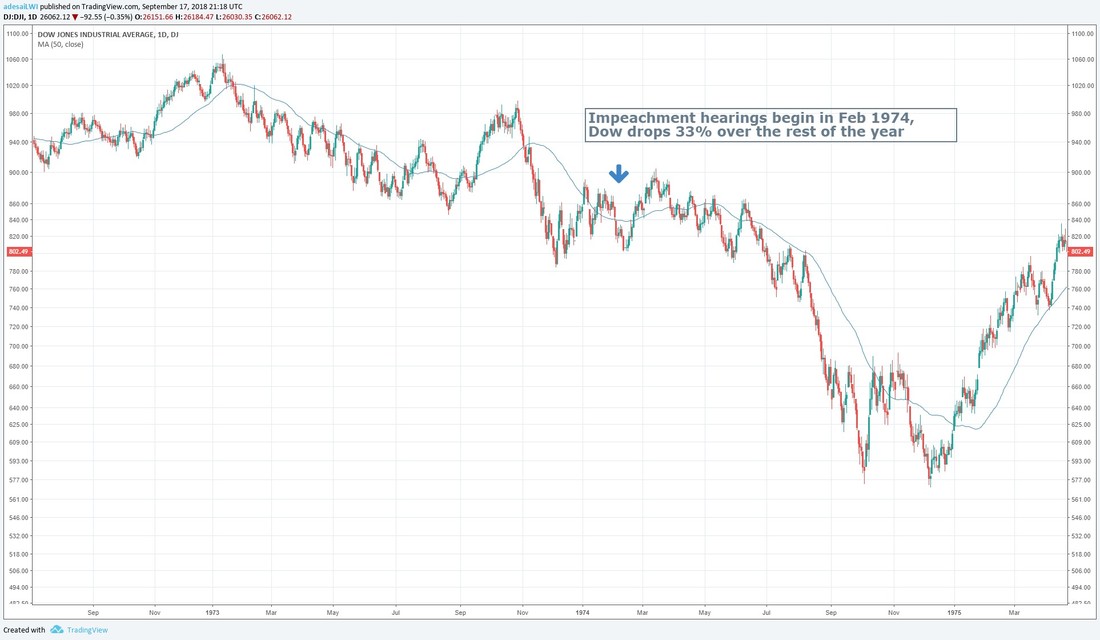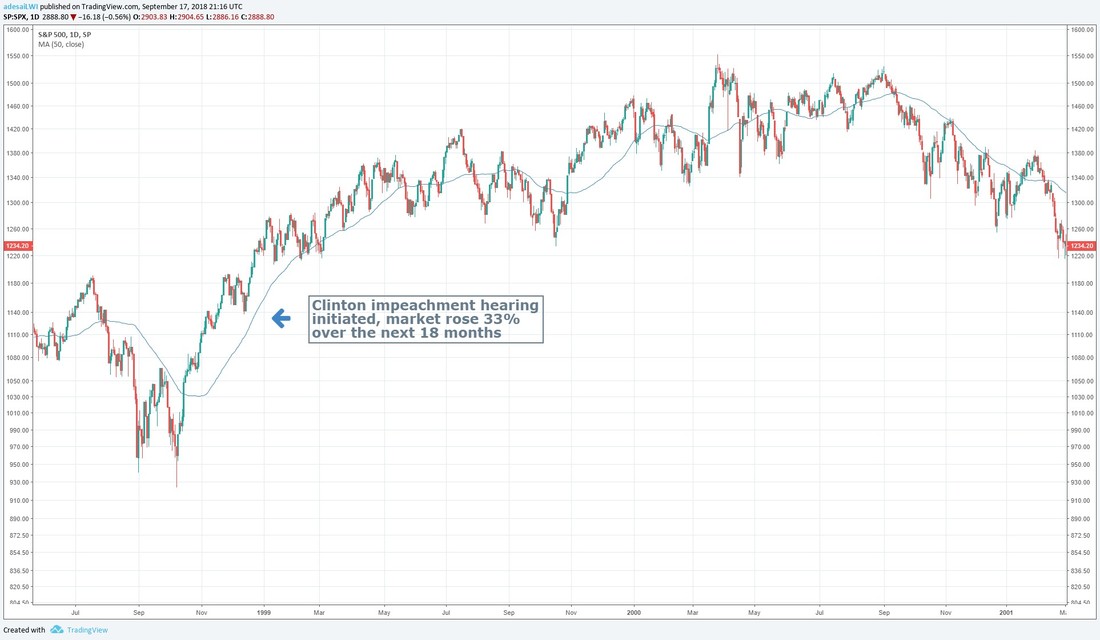|
‘Impeachment’ is a word that we are hearing more of following the Andy Cohen guilty plea and Paul Manafort conviction. Therefore, ‘If the President could be in trouble, then the market will be in trouble’, narrative is gathering steam. Out of curiosity, I looked back at previous analogs in history. In the post-World War II era, two U.S. Presidents have been subjected to impeachment hearings: President Nixon in 1974 and President Clinton in 1998. 1974 In 1974, the economic backdrop was dreadful. Inflation was already 6%, on the way to double digits, as the Oil Embargo and Yom Kippur War were both going on. Unemployment was 5% and heading to 9%. On the heels of Watergate, an impeachment process was underway which led to President Nixon’s resignation in August 1974. The Dow Jones dropped 33% from January 1974 to December 1974, and was range bound between 1966 -1982 for 16 years 1998 In 1998, the economy was strong, unemployment was low, inflation was low and heading lower, and the consumer sentiment was one of great optimism. The new internet era was in bloom. A strong bull market that started in 1982 was still going strong and even a Presidential impeachment could not derail it. While a 20% correction had already concluded, markets rose through President Clinton’s impeachment hearings and did not peak until March 2000. A sample size of two is too small to draw any conclusions as to how the market today might react. Although I can believe we can all agree that today’s economic backdrop has many more similarities to 1998 than 1974. While I have no political or legal expertise to predict the outcome in this case – my professional experience has taught me that political narratives have very little impact on investment outcomes. Think back to the last big narrative – If Donald Trump gets elected, markets will crash. The exact opposite has transpired. Over the next few months, market direction will most likely depend on the outcome of mid-term elections, trade talks, and emerging market currency problems. But if you do the right thing and focus on a longer timeframe, corporate earnings growth and interest rates will determine market performance. Buying or selling stocks based upon political beliefs and narratives might be fun, but it usually makes for a bad idea. The historical evidence is clear - investments and politics don’t mix.
0 Comments
Leave a Reply. |
Amol DesaiI am an investor and these are my personal thoughts on investing, behavioral finance, markets, and sports viewed through the prism of a Latticework |
Proudly powered by Weebly

